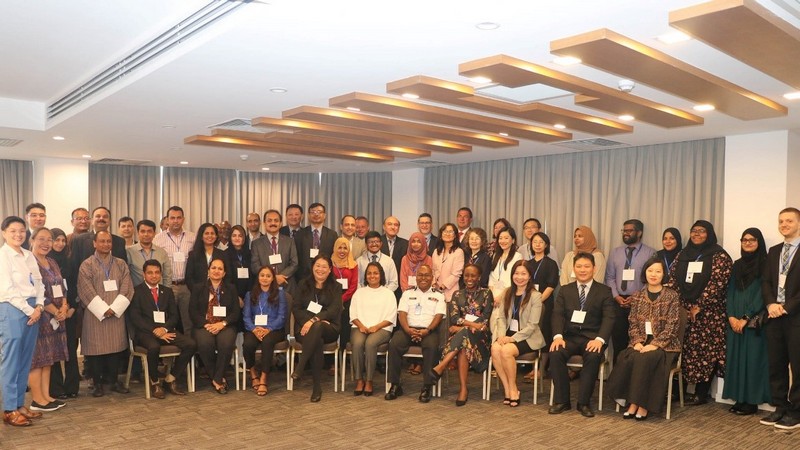In 2020, Maldives became the first developing country to successfully and completely phase out the production and consumption of Hydrochlorofluorocarbons (HCFCs), powerful greenhouse gases, 10 years ahead of schedule under the Montreal Protocol on Substances that Deplete the Ozone Layer. As travel restrictions have been lifted, national and international collaborating parties involved in the phase out plan were finally able to gather in Maldives to celebrate after 2 years. The Minister of Environment, Climate Change and Technology, H.E, Aminath Shauna awarded a token of appreciation to representatives from each of these agencies for their invaluable part in the HCFC phase out plan in the Maldives. The dinner and awarding ceremony was held on the 23rd of May 2023 at Paradise Island Resort.


Members and partners who provided diligent efforts and contributions include United Nations Environment Programme (UNEP), United Nations Development Programme (UNDP), Ozone Secretariat, Multilateral Fund Secretariat, Minister of Fisheries, Marine Resources & Agriculture, Minister of Tourism, Ministry of Defense, Maldives Customs Service, Maldives Polytechnic, Maldives Institute of Technology, Maldives Industrial Fisheries Company Limited, Horizon Fisheries Private Limited, and the Refrigeration and Air Conditioning Association of Maldives.
During the visit, five-day workshops and meetings were also held in Maldives from the 21st to 25th of May 2023 for South Asia’s Ozone officers and Customs officers. These workshops included the Network Meeting of the South Asia National Ozone Officers, the Green Customs Initiative Capacity Building Workshop for Customs Officers of the South Asia Region, and finally, the Twinning National Ozone – Customs Officers Workshop on Ozone Depleting substances (ODS) and Hydrofluorocarbon (HFC) Trade Control and Reporting.


The meetings were attended by National Ozone Officers from different South Asian countries, resource persons, the Ozone Secretariat, the Multilateral Fund Secretariat, and implementing agencies such as UNIDO, UNDP, World Bank, UNEP, Customs representatives, ASEAN and World Customs Organization (WCO). The meetings facilitated the South Asia network countries to share experiences and good practices in various areas under the Montreal Protocol. They also helped sensitize and educate customs officers about “Green Customs” and the fight against illegal trade of environmentally sensitive commodities. The joint twinning meeting aimed to build the capacity and cooperation of national ozone officers and customs officers and create a mutual understanding on strengthening monitoring and enforcement mechanism for ODS/HFC trade control through new innovative approaches.


